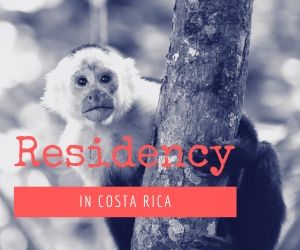I thought that as a disciple of the Jadcujo
School of Learn Spanish, I would post some interesting Tico Spanish expressions. Disfrute mis amigos....
A word is not a thing in itself. It is a symbol for a thing or a quality or an idea. Thus, it is arbitrary. I may refer to my vehicle as a “car,†“carro,†“macchina,†“voiture†or, for that matter, “Henry.†It doesn’t matter, as long as the person with whom I am trying to communicate is in agreement with the symbol I am using. This is logical.
Until, that is, I sit down to write a poem and find that I can go through 5 or 10 different words before I find one that gives me that “Aha!†feeling. Against all logic, I can’t tell you why, when there are several other words that stand for the same thing. It’s a mystery – and thank heaven for it.
Likewise, against all logic, certain words and expressions in everyday language have more charm than others. Here are some of my favorites in Costa Rican Spanish, many of which won’t be found in a standard dictionary. (Note that “pura vida†is not one of them.)
Acharita! or Charita! â€What a shame!†But we have to say it with a certain rhythm: ah-char-EEEE-ta!
Guacala! or Huacala! Yuck!
Ojo! Literally, “Eye!†It means, “Watch out!â€
Suave! Literally, “Soft!†It means, “Wait a minute!â€
Upe! It’s what Tico’s say (or yell) when they knock on the door, much better than our moronic “Is anybody home?â€
Acurrucarse. It means, “to cuddle up,†or to “curl up.†The charming part is that it imitates the sound a mother hen makes when she gathers her chicks around her.
Arroz con mango. When we mix things that don’t go well together, be it in a party list or the soup of the day, we have created “rice with mango.â€
Bocaraca’ A horrible poisonous snake with a beautiful name.
Cabanga. Nostalgia for something. It’s a tiquismo, so it’s not in the dictionary.
Chucaro. Wild, untamed, skittish. Best of all, it can describe a person as well as a horse.
Chunche. Thingamabob. Chunches means “stuff.â€
Con las manos en la masa. Literally, “with hands in the dough.†It means “red-handed.†Lo sorprendieron con las manos en la masa (they caught him red-handed.)
Culindingo. It is not in the dictionary either. Apparently it is a word that is no longer used. It refers to a person that is fussy about any and everything.
Dar a luz. Literally, “to give to light.†It means “to give birth,†but oh so poetically.
De mala muerte. Literally, “of bad death.†It means “crummy†or “lousy,†but it is not used to describe just anything. Comimos en el restuarante de mala muerte (we ate in a greasy spoon). Es un hotel de mala muerte (it’s a crummy hotel).
Escarabajo. Beatle.
Estar de chicha. To be in a foul mood
Estar en la luna. “To be on the moon,†to be distracted or “spaced out.â€
Guira guira. This is pronounced “gweary gweary – well, more or less. It means “hassle,†and is usually used with mucho. No quiero hacer eso – mucho guiri guiri (I don’t want to do that – too much hassle).
Llave maya. “Mayan key.†No, it’s not some esoteric doodad for entering the spirit world. Called variously “travel drive,†“memory stick†and “removable disk†in English, it’s that little USB device that plugs into a computer and allows us to carry data from one computer to another. Come to think of it, maybe it is an esoteric doodad after all.
Pagar los platos rotos. When we have to take flak for something that isn’t our fault, we are the one’s who, as the saying goes, “pay for the broken plates.â€
Para el tigre. Anything that is no longer useful, be it food, furniture or failed romance, is deemed para el tigre (for the tiger). A tigre, in this part of the world, is a cougar or jaguar.
Pata caliente. Literally, “hot paw.†It refers to a person who runs around a lot instead of staying home.
Patas arriba. Literally, “paws up.†It refers to a disorder or dysfunction. La casa esta patas arriba (the house is a real mess).
Pelo de gato. Literally, “cat hair.†It’s the fine misty rain we call “drizzle.â€
cabangaRuedacaca Literally, “wheel poop.†It means “dung beetle.â€
Vacilon. Something hilariously funny, a great time, as in Que vacilon!
Yuyo. Pronounced “ju-jo,†it literally means “foot fungus,†but it also refers to a bothersome person, someone we might call a “pain in the neck.†I think “foot fungus†gets it better.
This is a fantastic collection of Costa Rican Spanish expressions! Tiquismos like these really bring a language to life and show the unique cultural flavor of Costa Rica. Some of these, like pura vida, are well-known, but others, like culindingo and ruedacaca, are delightful surprises.









